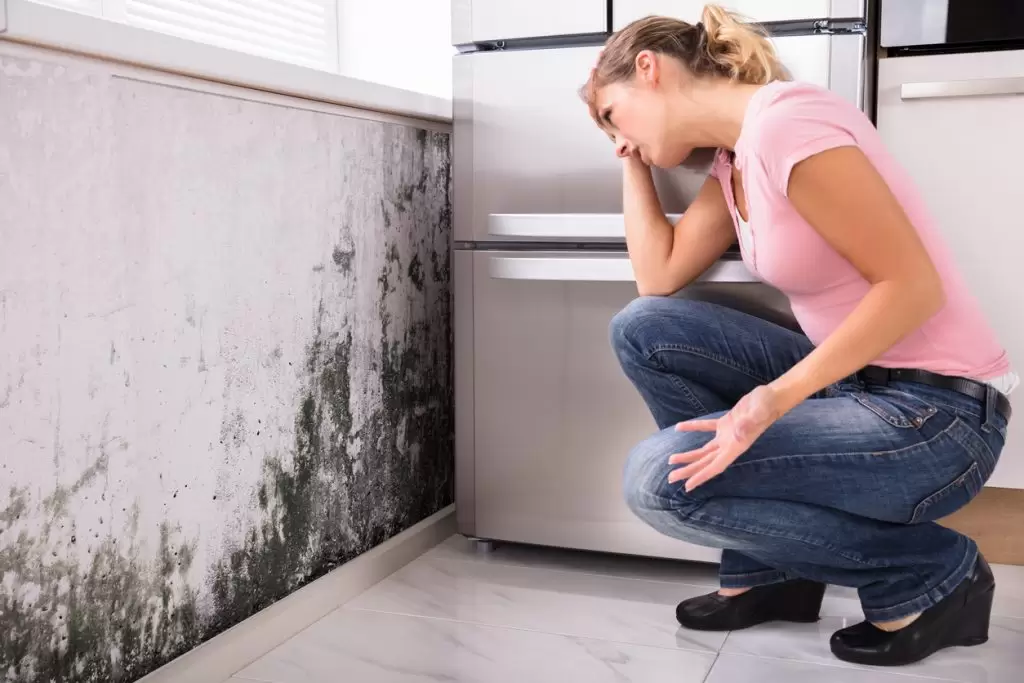Serving Kingman, Bullhead City, and Lake Havasu City
Menu

Household mold is a pressing problem for many households. Since mold grows where there is water or moisture, houses can provide the optimal breeding ground for mold. However, rooms like basements, attics, and bathrooms are more likely to have mold problems because of poor ventilation, high humidity, and zero access to the home drainage system.
Microbial growth occurs when mold spores, which can cling to clothing and animal fur, make their way inside your house and land in a damp area. It can take up to 72 hours for spores to take root and start increasing. Since mold can grow undetected (it’ll have grown a lot by the time you notice it), it is crucial for homeowners to learn how to prevent mold.
Mold prevention is crucial for many reasons, primarily health problems and the detrimental impact of an infestation on real estate properties.
No matter what type of mold grows in your home, uncontrolled microbial growth will inevitably put your household’s health at risk. Some mold variants release toxic mycotoxins, while others trigger allergic reactions like sneezing, runny nose, itching, eye irritation, rash, and nasal congestion. People react differently to molds and mold spores, but immunocompromised individuals have a much higher risk of experiencing the symptoms above more severely.
When mold grows extensively and it’s improperly remediated, the musty smell that comes with mold also lingers and is very hard to remove in a home. Finally, mold usually grows where there’s water damage. Buyers who see traces of mold inside a house would be right to suspect cosmetic and structural damage, discouraging them from making an offer for the property.
Prioritizing your health at home means caring for your house. It also means ensuring that it’s structurally sound, has optimal air quality, and is free from harmful elements. Maintaining (if not increasing) your house’s market value would follow.
How do you protect your family’s health and real estate investment? Here are a few tips on how to prevent mold growth in your home.
How do you protect your family’s health and real estate investment? Here are a few tips on how to prevent mold growth in your home.
Knowing that water is a crucial component of mold growth, it’s important to take measures to prevent moisture problems in your home. Here are some practical maintenance checks and tips you can implement:
Proper ventilation helps keep your house dry and the indoor humidity low because the airflow directs warm, damp air outside. However, this only happens when the indoor humidity is equal to or less than the outdoor humidity. Keep this in mind when doing any of the following:
Leaky roofs and indoor plumbing are the most common causes of water damage and household mold. Preventive measures for plumbing leaks, therefore, can help prevent mold.
Mold spores are everywhere and will inevitably make their way inside your home. While a normal amount of mold spores is harmless, uncontrolled growth can be an issue. The risks are even higher when you have pets, children, or housemates who spend a lot of time outdoors. Fortunately, you can control the environmental conditions inside your home and make them unwelcoming for any type of mold.
Learning how to prevent mold and making it a habit to follow the tips above can save you the cost of doctor’s appointments, medical treatment, and repairs for damage to your home. However, if mold persists despite your best efforts, our mold damage restoration experts can effectively address mold problems and restore the damaged areas of your home.
At Restoration 1 of Mohave County, we address both mold infestation and water damage. If the cause of your mold problem is a leaky roof or flooded basement, you won’t have to call another company to do much-needed repairs on your moldy ceiling or drywall.
Get in touch with Restoration 1 today. Call 928-235-4193 or fill out our contact form.